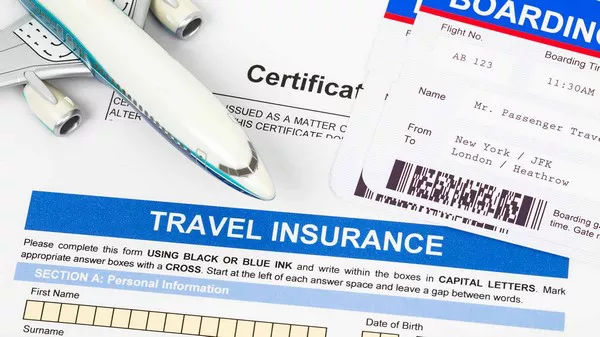Traveling with a pre-existing medical condition like cancer can be daunting, but it doesn’t mean you have to forego travel insurance. Ensuring you have the right coverage is crucial for a safe and worry-free journey. This article explores the nuances of obtaining travel insurance with a cancer diagnosis, from eligibility to finding the best policy for your needs.
Eligibility for Coverage
Individuals diagnosed with cancer can obtain travel insurance, although coverage options and terms may vary significantly depending on the insurer and the specifics of the individual’s health condition. Most insurers will provide some level of coverage, but the extent and cost will depend on factors such as:
- The type and stage of cancer
- The stability of the condition
- Recent treatments or hospitalizations
- Overall health and any other medical conditions
Some insurers specialize in high-risk cases, offering tailored policies that cater to individuals with cancer and other serious medical conditions.
Pre-Existing Medical Condition Clause
Cancer is classified as a pre-existing medical condition in the context of travel insurance. This classification means that standard travel insurance policies may not automatically cover cancer-related claims unless specified. The pre-existing medical condition clause typically involves:
Medical Screening: Insurers may require a detailed medical screening or questionnaire to assess the risk associated with covering someone with cancer.
Exclusions: Policies might exclude coverage for any claims related to the pre-existing condition, or they might impose a higher premium to include such coverage.
Waiting Periods: Some insurers might implement a waiting period, during which any claims related to the pre-existing condition are not covered.
Disclosure of Medical History
When applying for travel insurance, it is imperative to disclose your full medical history, including your cancer diagnosis and treatment details. Failure to do so can lead to claim denial or policy cancellation. Transparency is key, and most insurers will ask for:
- The type and stage of cancer
- Dates of diagnosis and any treatments
- Current treatment plans or medications
- Information on any other medical conditions
Honesty in your application ensures that you are adequately covered and prevents complications if you need to file a claim during your trip.
Specialized Insurance Providers
Several insurance providers specialize in offering travel insurance to individuals with pre-existing medical conditions, including cancer. These providers are more likely to offer comprehensive coverage tailored to the specific needs of cancer patients. Some specialized providers include:
AllClear Travel Insurance: Known for covering all medical conditions and offering a wide range of policy options.
InsureCancer: Focuses exclusively on individuals with cancer, providing tailored coverage options.
Medicover: Offers coverage for pre-existing conditions and has specific policies for cancer patients.
Using a specialized provider can make a significant difference in the level of coverage and peace of mind you receive.
see also: Do you need travel insurance to travel in Australia?
Coverage Limitations and Exclusions
Travel insurance policies for cancer patients often come with specific limitations and exclusions, such as:
Ongoing Treatment Exclusion: Coverage may not extend to ongoing cancer treatments that are scheduled during the trip.
Known Medical Issues: Conditions or complications that were known before purchasing the policy might not be covered.
Treatment Abroad: Some policies may exclude coverage for cancer treatments received abroad, limiting coverage to emergency medical situations only.
Recurrence of Cancer: If cancer recurs during the trip, the policy may have specific exclusions or limitations on covering related expenses.
Understanding these limitations is crucial to avoid unexpected expenses and ensure that your policy meets your needs.
Documentation and Medical Certificates
Applying for travel insurance with a cancer diagnosis often requires additional documentation and medical certificates to support your application. These documents may include:
- A letter from your oncologist or primary care physician outlining your diagnosis, treatment plan, and current health status.
- Medical records and reports detailing your cancer history and any other relevant medical information.
- Confirmation that you are fit to travel, especially if you have recently undergone treatment or surgery.
- Providing comprehensive and up-to-date medical documentation can facilitate the application process and help insurers assess your coverage needs accurately.
Cost Implications
A cancer diagnosis can significantly impact the cost of travel insurance premiums. Insurers consider cancer patients to be high-risk, leading to higher premiums to offset the potential costs of medical claims. Factors influencing the cost include:
- The stage and type of cancer
- Recent treatments or hospitalizations
- The destination and duration of travel
- The traveler’s age and overall health
While premiums may be higher, it’s essential to shop around and compare policies to find the best coverage at a reasonable cost.
Advice on Shopping for Policies
When shopping for travel insurance with a cancer diagnosis, consider the following tips to ensure you get the best policy for your needs:
Compare Policies: Use comparison websites and consult multiple insurers to compare coverage options, exclusions, and premiums.
Read Terms and Conditions: Understand the fine print, including any limitations on coverage for pre-existing conditions and specific exclusions related to cancer.
Seek Specialist Insurers: Look for insurers specializing in pre-existing medical conditions to get tailored coverage and better terms.
Check Existing Coverage: Review any travel insurance benefits provided by your credit card, employer, or other memberships to avoid overlapping coverage.
Consult an Insurance Broker: A broker with experience in high-risk insurance can help navigate the options and find a policy that fits your needs.
see also: Do you need insurance to go on holiday?
Assistance Services
Travelers with cancer may benefit from additional assistance services offered by some insurers, such as:
Medical Repatriation: Coverage for emergency transportation back to your home country if necessary.
24/7 Medical Support: Access to medical advice and support services during your trip.
Emergency Assistance: Help with locating medical facilities, arranging treatments, and coordinating with healthcare providers abroad.
These services provide an added layer of security and support, ensuring that you receive the necessary care promptly if an emergency arises.
Conclusion
Obtaining travel insurance with a cancer diagnosis is possible, but it requires careful consideration and planning. By understanding the implications of the pre-existing medical condition clause, disclosing your full medical history, and exploring specialized insurers, you can secure appropriate coverage for your travels. Always review policy terms and conditions thoroughly, compare multiple options, and seek professional advice if needed to ensure you are adequately protected. With the right travel insurance policy, you can enjoy your travels with peace of mind, knowing you are covered for any eventualities related to your health condition.
[inline_related_posts title=”You Might Be Interested In” title_align=”left” style=”list” number=”6″ align=”none” ids=”1555,1504,1477″ by=”categories” orderby=”rand” order=”DESC” hide_thumb=”no” thumb_right=”no” views=”no” date=”yes” grid_columns=”2″ post_type=”” tax=””]





















